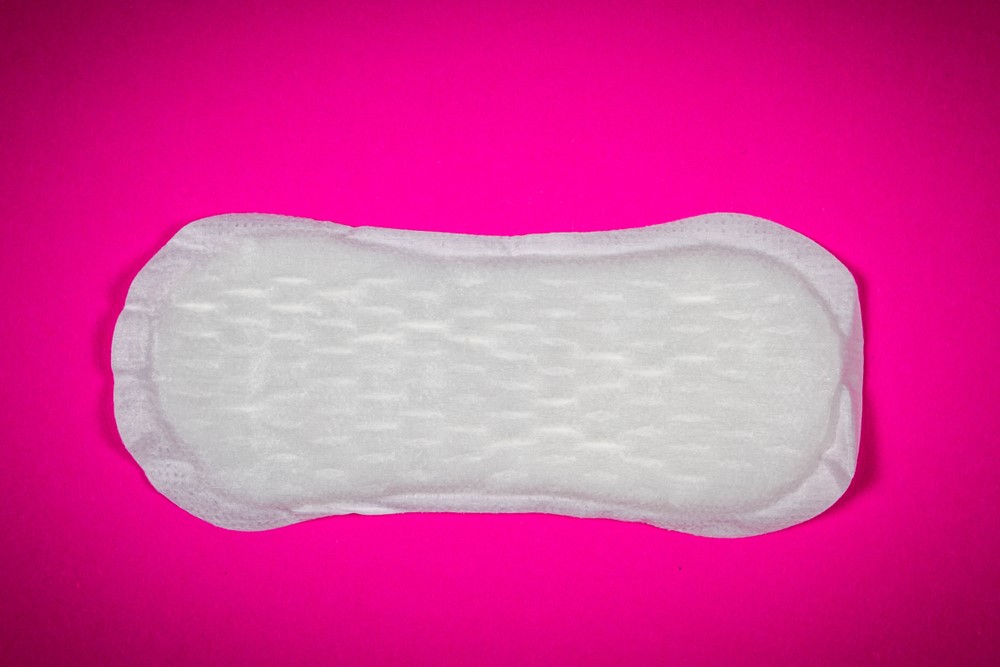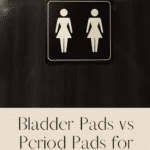
Incontinence is a tricky subject. Not because it’s difficult per se, but because it’s embarrassing. The subject is often avoided at all costs, despite the fact that between a quarter and a third of American men and women experience some form of urinary incontinence.
That’s a lot of people. So, it’s past time to drop the stigma and talk honestly about incontinence. The more conversations we have on the topic, the easier it is for people to find solutions and products that help.
Today we’re interested in a narrow area – bladder pads vs period pads.
This is important to talk about, as the two products look similar. Many senior women actually buy period pads for light incontinence, partly because they’re familiar and are less embarrassing than incontinence products.
But, are the two products really interchangeable?
The simple answer is no. Bladder pads and period pads have some important differences. Let’s look at them and see why bladder pads really are powerful.
Bladder Pads vs Period Pads – The Basics
What They Are
Let’s get the obvious out of the way first. Bladder pads or incontinence pads are designed to catch urine, while period pads catch menstrual blood instead.
While these are both liquids, they behave in different ways. This is why it’s best to match the pad to your needs.
Bladder pads and period pads are both easy to buy in local stores and even at the supermarket. You’ll have walked past them hundreds or thousands of times. They’re hard to miss.
They can be purchased online too. This is particularly useful for bladder pads, as buying them locally can be embarrassing sometimes. NorthShore is an excellent place to look, as they offer a variety of products, plus samples and discounts.
How They Differ
There are a few key differences between the types of pads.
Absorbency
Incontinence pads tend to hold more liquid than period pads, partly because they’re able to absorb it better.
Being able to do so is crucial, as menstrual blood is released slowly most of the time, while urine often isn’t.
Instead, urine often comes out in a rush and there may be a lot of it. The pad needs to compensate for this. Some pads increase absorbency by using gel, allowing them to take on a surprising amount of liquid.
You don’t get this effect with a period pad. Because of this, accidents can easily spill over the period pad, leaving people with wet pants and seats.
Skin Protection
Incontinence pads often use special fabric that draws moisture away, which reduces the risk of rashes (even when a senior doesn’t immediately change the liner).
In contrast, liquid on period pads tends to stay close to the skin. This quickly leads to rashes and can be very uncomfortable.
The difference is crucial, as some seniors aren’t aware of when they have an accident and may feel dampness. Also, if the senior is away from home, changing the pad immediately mightn’t be possible. It’s vital that they have something that’s comfortable on their skin for an hour or two, just in case.
Odor Control
Urine has a distinct odor, particularly when people are dehydrated. Bladder pads are designed to account for this.
Wicking the liquid away from the surface helps with the odor somewhat. Some products also contain gels that change the state of the urine, making it more solid and decreasing the risk of odor.
Spill Guarding
Because bladder pads are designed for incontinence, they’re often good at protecting against spills. For example, the liners from Northshore tend to have tabs at the side to prevent any spillage.
However, this partly depends on the style of pad you buy and the level of incontinence that it’s designed for.
Are Bladder Pads Just For Women?
While period pads are normally associated with women, bladder pads can be used by anyone.
However, the products aren’t exactly the same. They often have different absorbency areas and styles depending on who they’re for.
In particular, male products tend to be more absorbent at the front, while female ones are more absorbent at the bottom instead.
Some men also use bladder pads in conjunction with other types of male incontinence products, like a penile clamp. In this situation, the bladder pad is there just in case the primary incontinence product isn’t effective enough.
When Should You Use a Bladder Pad?
Bladder pads are best for light to moderate leakage.
They’re particularly good for stress incontinence, which is where a little urine leaks out during physical exertion, like when you laugh or sneeze.
In this situation, you’re only releasing a little urine at a time, so the pad should easily be able to handle it.
Urge incontinence is a different story. This is where the need to go to the bathroom comes on suddenly and you need to rush to get there on time (and, sometimes you mightn’t make it).
Your bladder is often full or mostly full in this situation, which is too much liquid for any pad to handle. You’ll need to look at full brief products instead, like the ones from Depend and Tena.
Related: Depend Versus Tena – My Thoughts After Wearing Each For a Day
What If I Need Both?
The comparison of bladder pads and period pads is easy for seniors, as they aren’t likely to be menstruating.
However, things are more complicated for younger caregivers. In fact, bladder control can often get worse during menstruation.
In this situation, you may need to period pads and change them regularly if you have any incontinence issues. Doing so isn’t ideal, but a bladder pad won’t handle period blood well at all and there aren’t many products designed to support both needs.
Alternatively, you may need to handle your period blood in a different way, like with a tampon or a menstrual cup. Doing so would allow you to then wear a bladder pad.
Final Thoughts
Many people do use period pads instead of bladder pads. After all, period products are often cheaper and they’re much less embarrassing.
But, as you can see, period pads don’t work as well. They won’t contain nearly as much liquid and any odor becomes noticeable much faster.
Plus, period pads don’t wick moisture away well. Because of this, seniors who were the pads regularly may develop rashes.


Leave a Reply